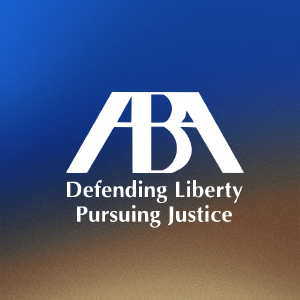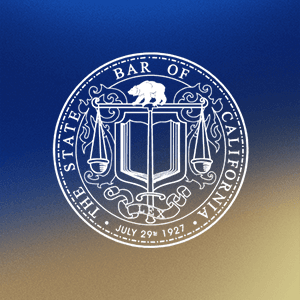
What is Road Rage?
Road Rage Defense in Los Angeles
Road Rage is aggressive or violent behavior that occurs between drivers on a roadway (city streets and highways). Road Rage may start off with rude gestures including yelling, insults, threats, tailgating, speeding, hand and facial gestures and quickly escalate to conduct that injures or threatens to injure, kill or harm another individual. Road Rage is not a specific crime but rather encompasses numerous different crimes.
The term "Road Rage" most likely originated in Los Angeles, California during the late 1980s when some frustrated motorists started shooting at each other on the Los Angeles freeways. Road Rage takes many forms – from yelling obscenities to murder. Road Rage fueled crimes are usually committed in anger as punishment to a bad driver. Road Rage can lead to significant penalties, including steep fines, jail time and a permanent criminal record.
If you are facing charges surrounding road rage, discuss your options in a no-cost consultation today.
Is Road Rage a Criminal Offense in California?
Although there is no actual crime called "Road Rage" in California, it is one of the few states that specifically mention Road Rage in its laws. According to California Vehicle Code section 13210, if a person uses a car to injure another person who is in a car, on a bicycle or walking on a highway, in addition to the penalties set forth in Penal Code section 245(a) (Assault with a Deadly Weapon – the weapon being the car) the court may order the suspension of the defendant's driver's license.
- First Road Rage Offense: can result in a six-month suspension
- Second or Subsequent Offense: one year suspension
In addition to, or instead of the suspension, the court can order a person convicted for road rage to complete a court-approved anger management or "Road Rage" course.
California Road Rage Crimes
Road Rage can lead to a number of criminal offenses, both misdemeanors and felonies, which can result in a county jail or state prison sentence, hefty fines, and worst of all a permanent criminal record.
While Road Rage isn't a crime, there are several crimes that typically arise from Road Rage incidents, depending on the circumstances:
-
Assault (California Penal Code 240) - Assault or Simple Assault is an illegal attempt, coupled with a present ability, to commit violent injury against another. Example: one driver threatens to run another driver into oncoming traffic. The defendant does not have to touch the victim to be charged with assault. Assault penalties include: incarceration in the county jail for up to six months, fines, probation, and anger management classes.
-
Assault with a Deadly Weapon (ADW) / Aggravated Assault [California Penal Code 245(a)(1)] - When a car is used as a weapon it can be charged as Assault with a Deadly Weapon. Example: a driver runs a biker down. ADW can be charged as either a misdemeanor or felony. Punishment ranges from minor fines, community service and county jail time to incarceration in the state prison for four years, a $10,000 fine and a "Strike." The punishment can be increased by several years if the victim had severe or great bodily injury.
-
Battery (California Penal Code 242) - Battery is an unlawful use of force or violence against another person. Example: a driver gets out of his car and punches another driver at a stop sign. However, the victim does not have to sustain an injury as a result of the battery. Misdemeanor Battery penalties are similar to those of misdemeanor Assault.
-
Brandishing a Firearm (California Penal Code 417) - Showing or drawing a firearm in an angry, rude or threatening manner or during a fight is "brandishing" a firearm. Example: the driver pulls up alongside the other driver and shows a gun, pointing it at the sky. Brandishing a firearm can be charged as either a misdemeanor or felony, and is punishable by up to a year in county jail or up to three years in state prison.
-
Criminal Threats (California Penal Code 422) - Criminal Threats can be charged if a driver threatens another with violence, harm, injury or death with the intent of intimidating or frightening the victim. Example: a driver pulls up alongside the other car and threatens to kill the other driver at the next stop sign. Criminal Threats can be charged as either a misdemeanor or felony and is punishable by county jail or state prison.
-
Hit and Run (California Vehicle Code 20001, 20001a, 20002, and 20002a) - A Hit and Run is damaging property or injuring someone in a car collision and leaving the scene without exchanging information or helping someone who is injured. Example: a driver rams the back of another driver's car and drives away. If the damage is to property, the hit and run is charged as a misdemeanor and can result in jail time and a fine of up to $1,000. If a person is injured, a Hit and Run can be charged as either a misdemeanor or felony depending on the severity of injuries. Penalties for a Hit and Run vary: up to six months in county jail for simple Hit and Run (with no injuries) to a state prison commitment for felony Hit and Run cases where there is injury. Felony offenses can result in up to four years in state prison and up to $10,000 in fines.
-
Reckless Driving (California Vehicle Code 23103, 23104) - Driving a car with disregard for the safety of people or property is reckless driving. Example: speeding over 100 miles per hour, tailgating, intentional swerving. If the driver causes no injuries, it is a misdemeanor. If the reckless driving injures someone, the driver may be charged with a misdemeanor punishable by 90 to 180 days in county jail or as a felony punishable by up to three years in state prison.
-
Vandalism (California Penal Code section 594) - It is a crime to damage or destroy someone else's property. Example: You exit your car and approach another driver and kick the driver's door or key the car. The penalties for vandalism will depend on the dollar value of the property damaged or destroyed. If the damage is less than $400, it will be charged as a misdemeanor punishable by up to six months in county jail. If the damage exceeds $400 then the crime can be prosecuted as a felony punishable by up to three years in state prison.
Road Rage Defense
Any of the crimes charged in a Road Rage case have very specific criminal elements that require the prosecution to prove every element of a charged crime beyond a reasonable doubt. Because both drivers are acting in anger in many Road Rage cases, various defenses may be available, such as self-defense (for example, the defendant shot the other driver because he was threatening to kill the defendant.)
The Los Angeles defense lawyers at Stephen G. Rodriguez & Partners meticulously comb through the facts in Road Rage cases in California. We aggressively expose weaknesses and inaccuracies in the prosecution's case, while building the best defense possible for our client. Exposing any weaknesses in the prosecution's case helps us get the case dismissed or the charges reduced.
Defense from Los Angeles Road Rage Assault Lawyer
If you are facing criminal charges related to a Road Rage incident, you need aggressive and hard-working Los Angeles criminal defense attorneys in your corner. At Stephen G. Rodriguez & Partners, we understand the dynamics of how a simple traffic issue can turn into a serious Road Rage incident.
Contact us for a no-cost consultation and learn what legal options are available.
Client Reviews
-
God Bless you Stephen, wish you all the successes in life.
“Stephen is a great contact and extremely helpful and knowledgeable. I am glad that I was his client in the past. Top lawyer, top man. God Bless you Stephen, wish you all the successes in life.”
-
Don't hesitate to contact them!
“I was referred to this group of Attorneys. I was started with a low cost made arrangements. My case had to do with assault allegations. The case was dismissed they helped me not to loose my daughter to the system.”
-
Never Talk To Police
Know your rights when questioned by law enforcement.
Defend Your Rights -
Learn What To Do When Confronted and Interviewed By The Police
Honest & practical advice during a free initial consultation. Call now to get started!
Read More -
Don't Plead Guilty!
A plea bargain may not be in your favor. Let us help evaluate all of your options.
Learn More









